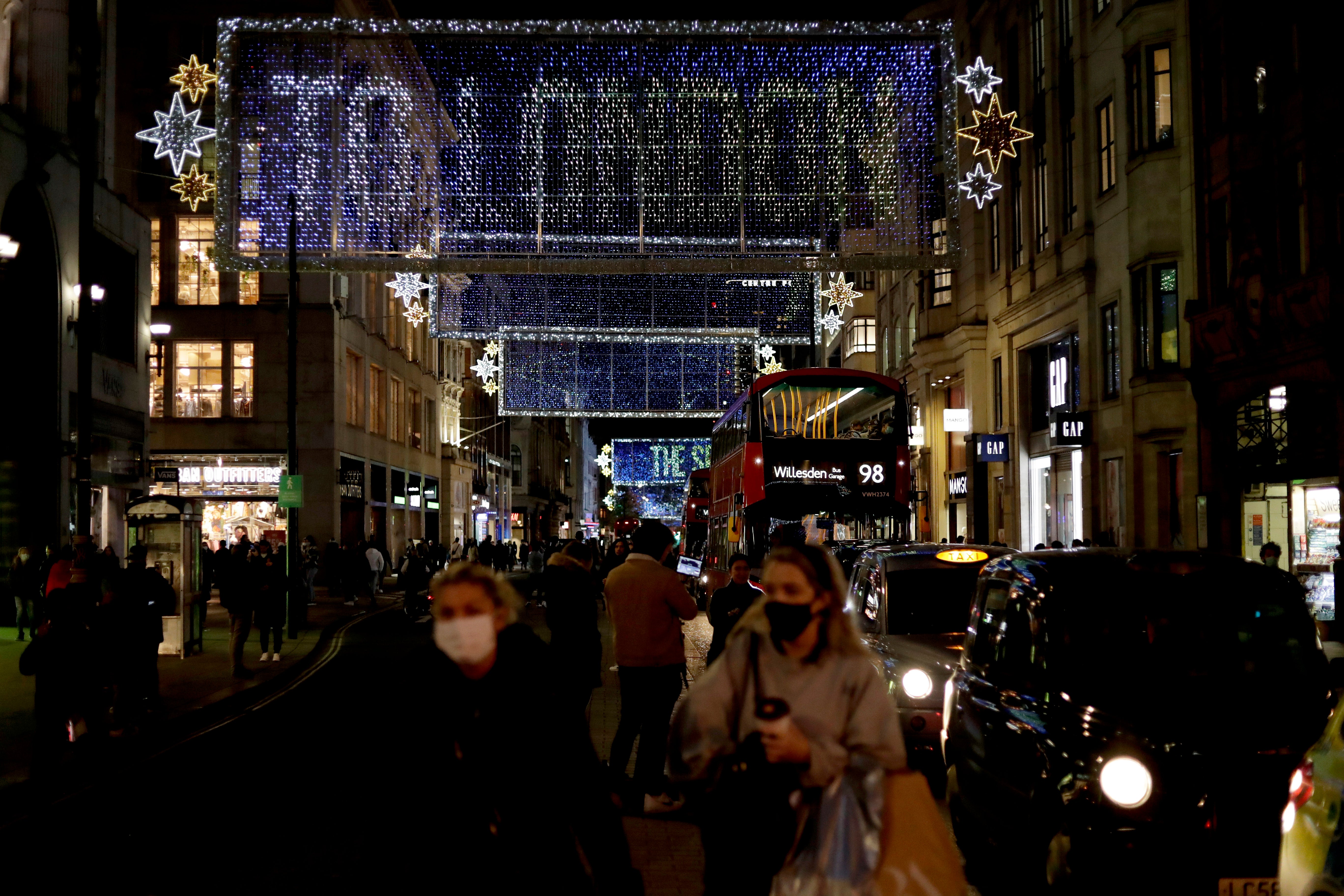English retailers fret over Christmas as lockdown 2.0 looms
A second lockdown in England is set to come into force this week

Your support helps us to tell the story
From reproductive rights to climate change to Big Tech, The Independent is on the ground when the story is developing. Whether it's investigating the financials of Elon Musk's pro-Trump PAC or producing our latest documentary, 'The A Word', which shines a light on the American women fighting for reproductive rights, we know how important it is to parse out the facts from the messaging.
At such a critical moment in US history, we need reporters on the ground. Your donation allows us to keep sending journalists to speak to both sides of the story.
The Independent is trusted by Americans across the entire political spectrum. And unlike many other quality news outlets, we choose not to lock Americans out of our reporting and analysis with paywalls. We believe quality journalism should be available to everyone, paid for by those who can afford it.
Your support makes all the difference.This year, the annual illumination of the Christmas lights on London's famous Oxford Street was very much a bittersweet moment.
The lights, which were turned on this week, are celebrating the people who helped during the coronavirus pandemic. They should have symbolized the start of a keenly awaited retail season following a year marked by lockdown restrictions.
But with a second lockdown in England set to come into place on Thursday, shops selling nonessential items such as books and sneakers have been ordered to close, at least until Dec. 2. During the first lockdown they closed for nearly three months until mid-June.
The latest decision, according to Helen Dickinson, the chief executive of the British Retail Consortium, represents nothing less than a “nightmare before Christmas.”
With much of the British economy to be mothballed once again as the government tries to contain the resurgent coronavirus, many firms face another battle for survival that could see unemployment rise sharply. The Bank of England will likely offer more financial stimulus on Thursday, though there is little it can do to blunt the blow.
“It will cause untold damage to the high street in the run-up to Christmas, cost countless jobs, and permanently set back the recovery of the wider economy, with only a minimal effect on the transmission of the virus,” said Dickinson.
The announcement on Saturday of the English lockdown from Prime Minister Boris Johnson was a surprise given that he had for weeks stressed his preference for more regional, targeted strategies to contain the virus. England’s lockdown follows similar restrictions in Wales and Northern Ireland and the re-imposition of widespread restrictions in Scotland.
With new cases showing few signs of slowing and other European countries also imposing new lockdowns, Johnson said he had to be “humble in the face of nature." He said that without a lockdown, coronavirus-related deaths during the winter could surpass those in the spring. The U.K has already recorded the most virus-related deaths in Europe with nearly 47,000.
It's a big economic blow, not least because retailers have had to spend heavily to make their premises COVID-safe.
The decision has dashed hopes that the British economy might recoup by the end of this year a large proportion of the near 25% of output lost in the spring. The British economy is widely expected to contract a further 10% in November and end the year around 12.5% smaller than when it started.
“Activity in the directly affected parts of the economy such as retail, restaurants and bars, real estate, leisure and travel will tank during November,” said Kallum Pickering, senior economist at Berenberg Bank. “Less affected sectors will still feel a pinch as the big confidence shock hurts domestic demand.”
The lockdown decision has cemented market expectations that the Bank of England will increase its bond-buying program by at least 100 billion pounds ($130 billion) on Thursday to keep a lid on borrowing rates in the markets and to ensure money keeps flowing through the financial system.
The economic contraction in November is not expected to be as severe as the one after the first lockdown, partly because the manufacturing and constructions sectors will remain open, as will schools and universities. There's also more aggressive economic support in place while demand from around the world, notably China and the U.S., is stronger.
Firms of all sizes are also far better prepared to do business online and to deliver to homes.
“Unlike the last time we were in lockdown, our suppliers and publishers are now set up to make regular deliveries so we should be able to get books in quickly,” said Cathy Slater, the owner of Dulwich Books, a small independent outlet, in southeast London.
___
Follow AP’s coronavirus pandemic coverage at https://apnews.com/hub/virus-outbreak and https://apnews.com/UnderstandingtheOutbreak